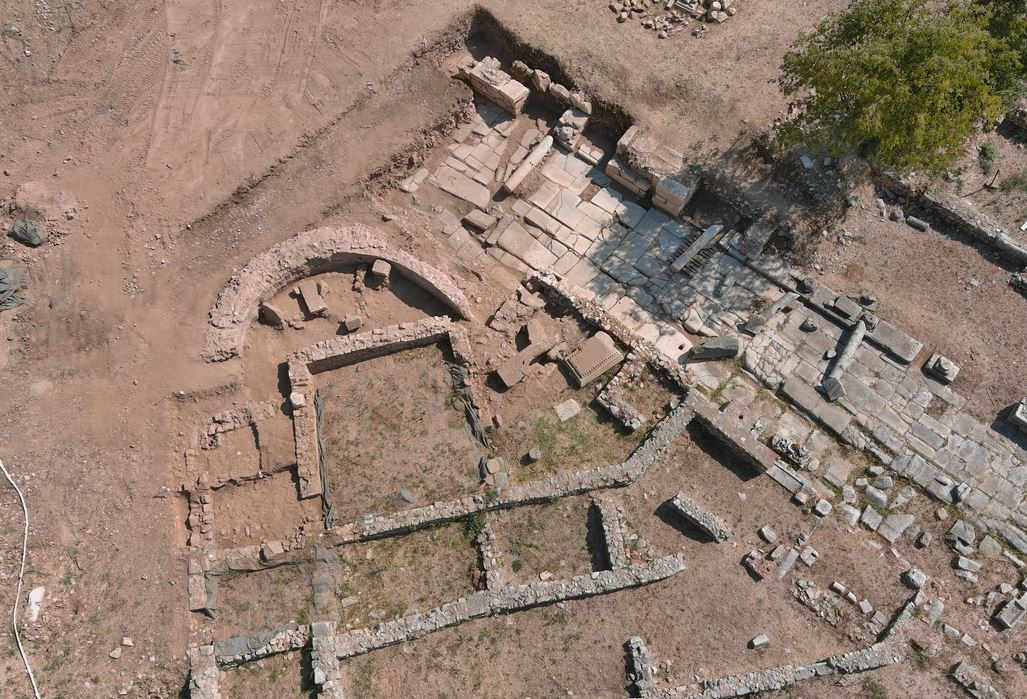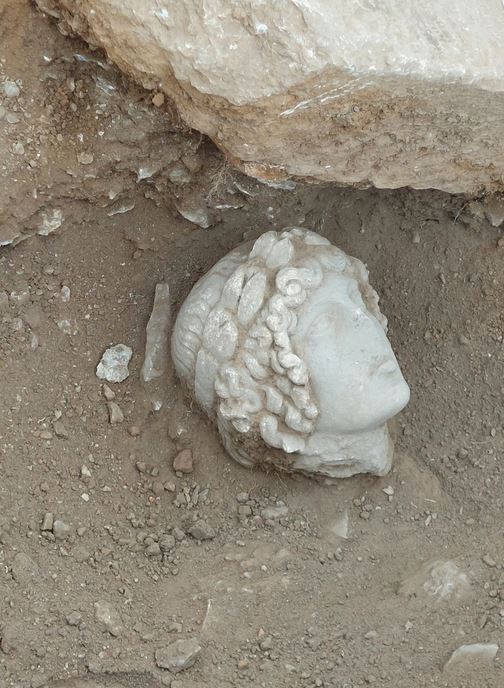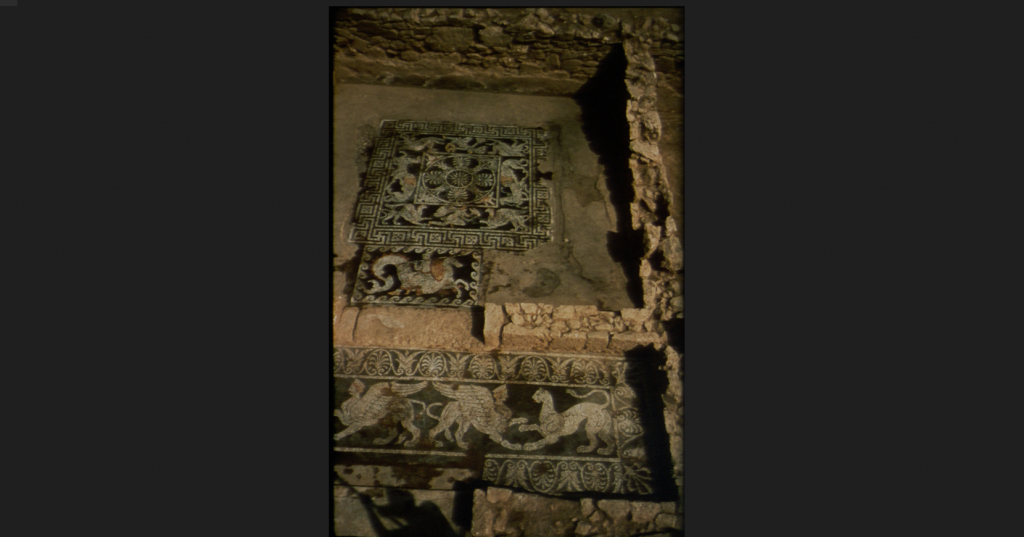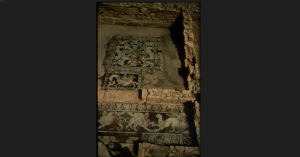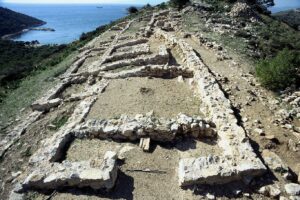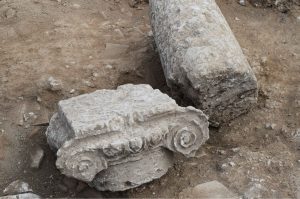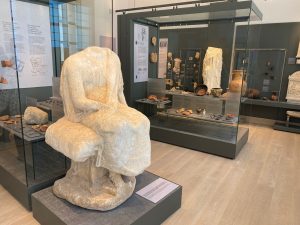The head of a statue believed to depict the mythical Greek god Apollo was unearthed during excavations at the major archaeological site of Philippi – a UNESCO World Heritage site – located at the foot of an acropolis (highest ground) in northern Greece, near the port city of Kavala.
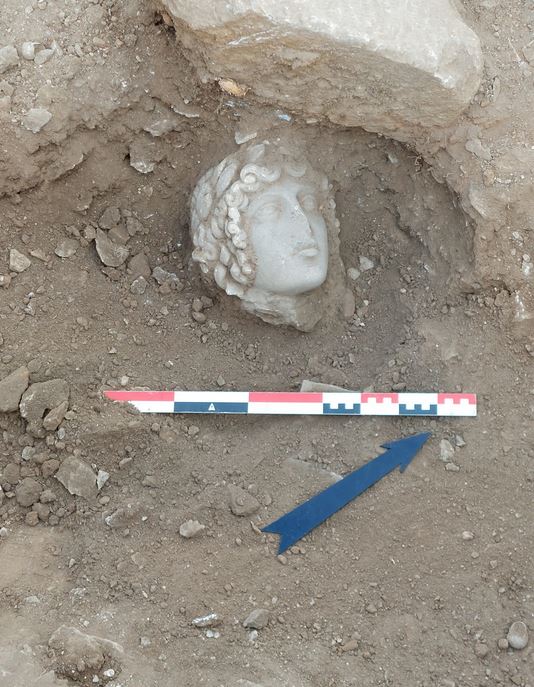
The discovery was made by a team of undergraduate, graduate and post-grad students from the Aristotle University in Thessaloniki under the supervision of Prof. Natalia Pouli, along with Prof. Anastasios Tantsis and Professor Emeritus Aristotelis Mentzos.
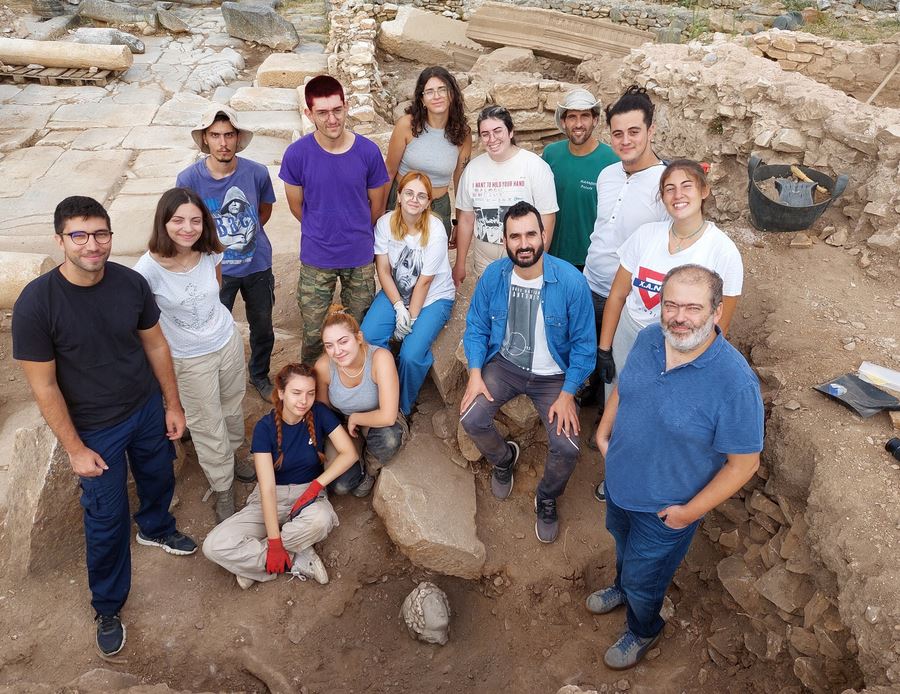
The research stopped in 2023 but resumed this year east of the southern main road at the intersection of the northern axis of the city (the Via Egnatia). The excavations revealed a section of the marble-paved road with a coin (bronze follis) of Byzantine Emperor Leo VI (886-912) on its surface, showing its use during the period.
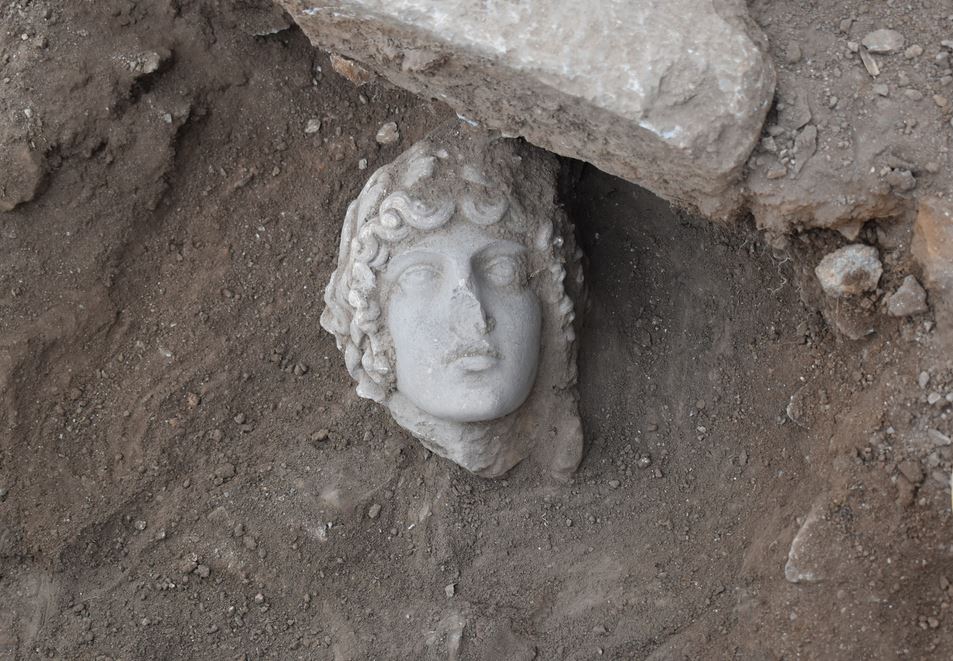
At the intersection of the two roads, an expanding (plaza) appears to be emerging, with an elaborately decorated structure prevalent. The findings from last year’s excavation led researchers to believe it was a fountain, a hypothesis confirmed by this year’s excavations.
